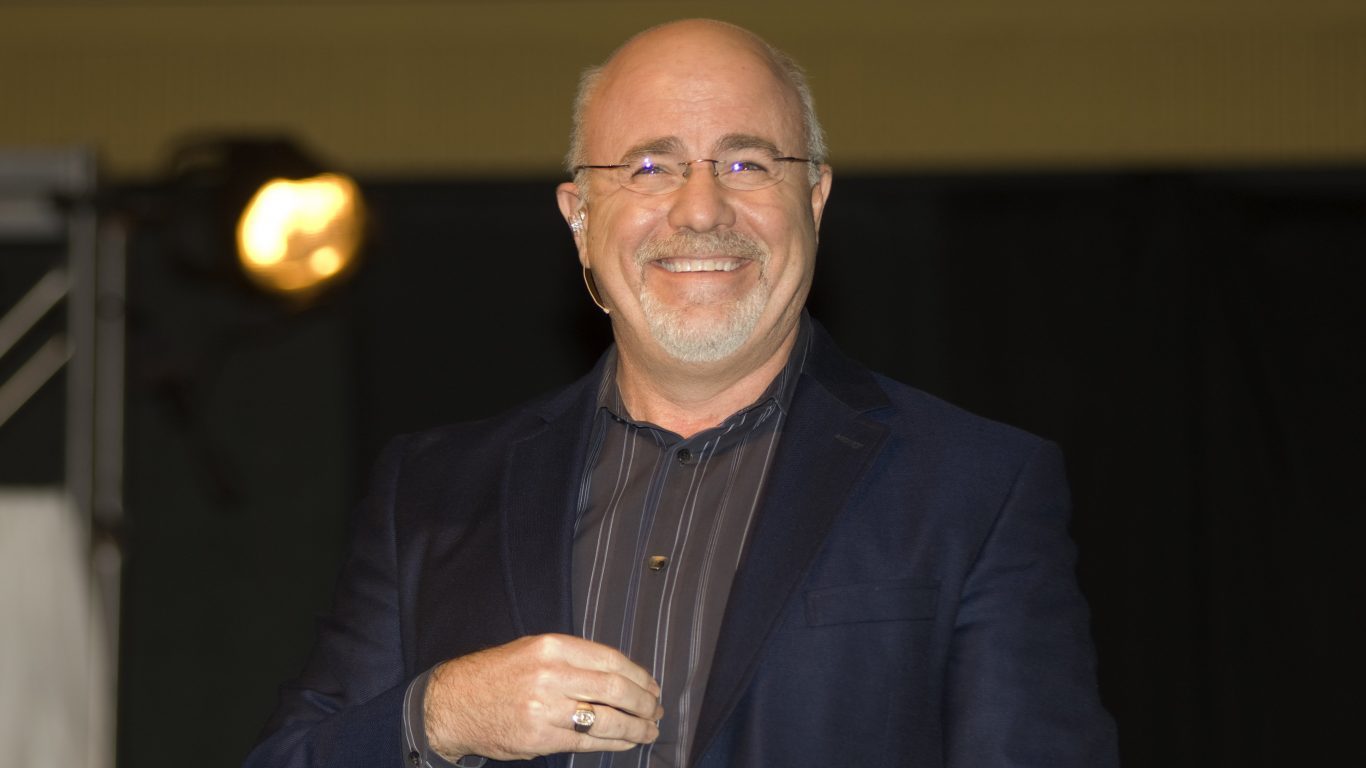Personal Finance
Dave Ramsey: These Two Questions Can Tell if You Want to Be Wealthy or Struggle

Published:

Personal finance expert, Dave Ramsey says that two simple questions can be a game-changer for building wealth. That includes How much does it cost, and How much is the down payment?
He also says those with a healthy mindset will ask the first question first. Meanwhile, those who ask about down payments often struggle financially. All of which makes perfect sense when you dig deeper.

Right now, according to Debt.com, about 80% of U.S. workers live paycheck to paycheck. About 25% of that group really can’t save much month over month. In addition, about 70% say their debt and debt payments make it difficult to address other key financial issues. Worse, about 37% of Americans have a tough time covering $400 in emergency expenses, according to Empower Research. Also, nearly a quarter of people have no emergency savings at all. And, one in five Americans has maxed out their credit cards. And the average adult carries just over $104,000 in total debt, says Experian.
None of those numbers are anywhere near great.
If you fall into those categories, Ramsey suggests creating a budget, creating an emergency fund, and, if at all possible, stop relying heavily on credit cards.
As Ramsey has said on Facebook, “If you can’t buy something with cash, don’t buy it. Debt is debt. It will hurt you, no matter what the interest rate is. Your life matters TOO MUCH to give your money away to payments. You deserve better than that, and the first step to getting there is to STOP taking on more debt.”
Easier said than done for many of us. I get it.
But we all have to start somewhere, right?
There are ways to tackle high-interest debt.
One is to focus on the smaller balances first. That way, you free up even more cash for the heavier debt. Then, once the smaller debts are paid off, you now have new cash flow to tackle to make extra payments on higher interest balances.
Then, as noted by Ramsey Solutions, “Make minimum payments on all debts except the smallest—throwing as much money as you can at that one. Once that debt is gone, take its payment and apply it to the next smallest debt (while continuing to make minimum payments on your other debts).”
Then, repeat that over and over again until you drive down your overall debt.
Two, you could make just minimum payments on all of your debt and put a chunk into the expense with the most interest. Or three, you could take out a consolidation loan, wipe out all of the outstanding debt, and have one balance. Not only could this allow you to manage your debt a bit better, but it may also allow you to put extra funds into an emergency account.
Start small with an emergency savings goal of at least $1,000. Sure, it’s small but it’s a safety net, and it’s a start. In fact, if you can put away about $85 a month, you’ll reach that goal and have some wiggle room.
However, be sure to store this in a separate “don’t touch” account, automatically depositing money every time you’re paid. Plus, if you ever receive another source of income, such as a bonus or a gift, put it directly into that “don’t touch” account instead of spending it immediately.
Or, look at your current spending habits to save.
For example, how often do you go out to eat as compared to saving a few dollars and a few calories by making meals at home? How often are you grabbing drinks with friends? Perhaps you have subscriptions you could live without for a while. Sure, you should have fun and live life to the fullest with your money, too. But maybe cut back here and there.
Small attainable goals created with a clear plan can help you pay down debt and build your emergency savings.
You could also discuss strategies for building wealth and reducing debt with a financial planner, which never hurts to do.
Start by taking a quick retirement quiz from SmartAsset that will match you with up to 3 financial advisors that serve your area and beyond in 5 minutes, or less.
Each advisor has been vetted by SmartAsset and is held to a fiduciary standard to act in your best interests.
Here’s how it works:
1. Answer SmartAsset advisor match quiz
2. Review your pre-screened matches at your leisure. Check out the advisors’ profiles.
3. Speak with advisors at no cost to you. Have an introductory call on the phone or introduction in person and choose whom to work with in the future
Thank you for reading! Have some feedback for us?
Contact the 24/7 Wall St. editorial team.